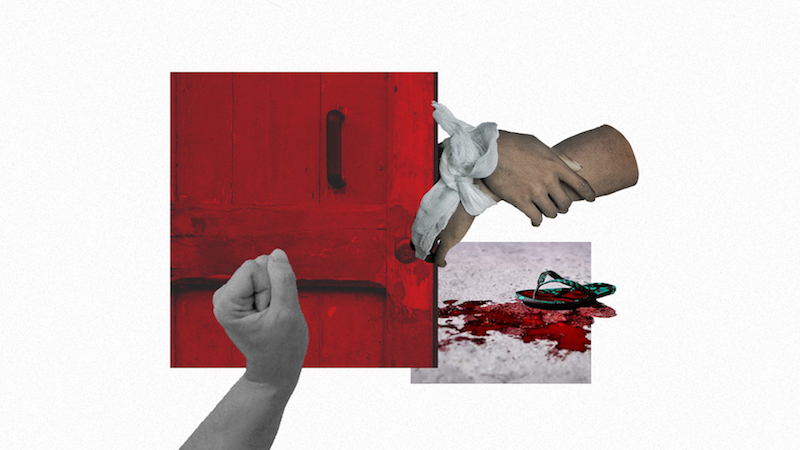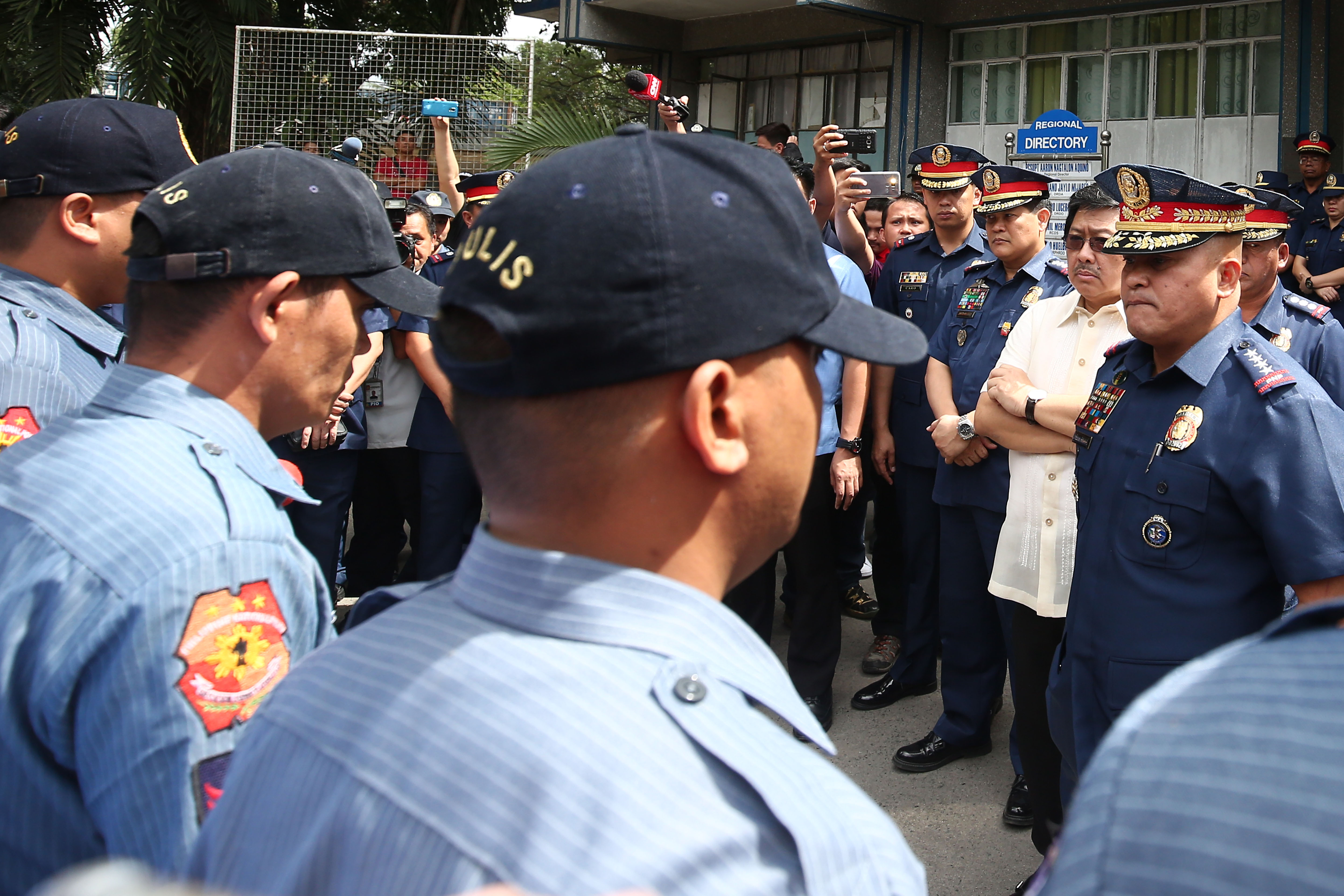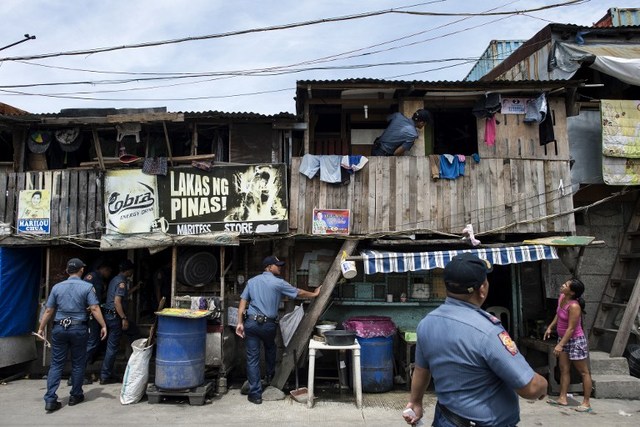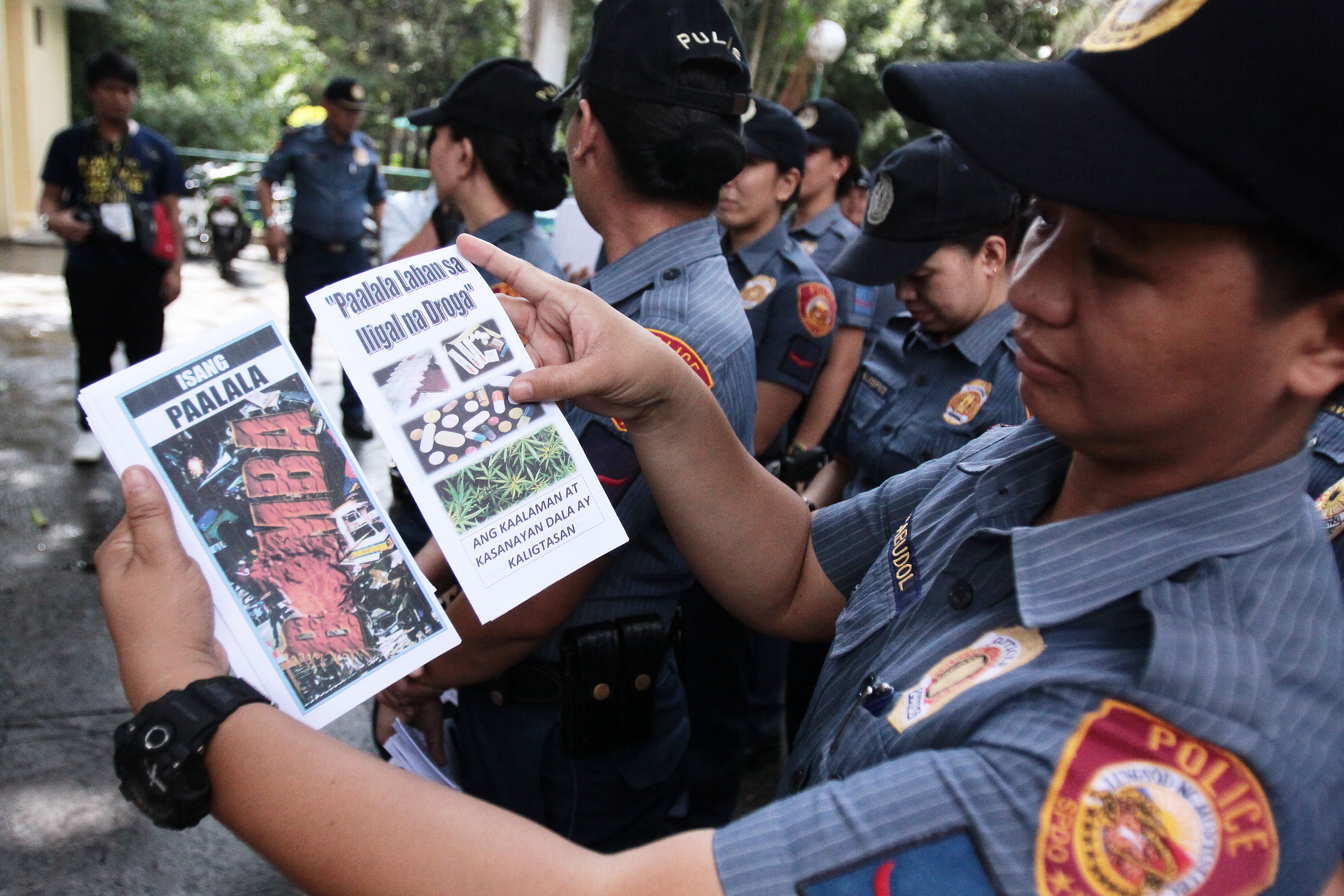
MANILA, Philippines – The Philippine National Police (PNP) recently released new guidelines for its most popular and most controversial project under President Rodrigo Duterte: Oplan Tokhang.
Some 18 months, 8.8 million home visits, and almost 4,000 deaths in drug operations later, PNP chief Ronald dela Rosa signed the Supplemental Guidelines for Oplan Tokhang, which detailed, step-by-step, how the project should be done for a "bloodless" war on drugs.
The memorandum reads like an instruction manual, leaving no space for possible abuse. It divides the project into 3 phases: Pre-Tokhang, During Tokhang, and Post-Tokhang.
We break down the instructions for the "new" Oplan Tokhang into 7 steps. Will the shift be enough to stop the blood from flowing?
Pre-Tokhang

1. Creation, updating of the drug watchlist
The drug watchlist is the bible of Oplan Tokhang. Without it, cops cannot operate, as they can only conduct Tokhang against people on the list.
Before, the list had been modified haphazardly. Names were added by local police and officials themselves.
Under the new rules, only names validated by the PNP's Directorate for Intelligence (DI) can be added to the list. Names not validated should be queued for further validation.
2. Creation and training of Tokhang teams
Not just anyone can conduct Tokhang anymore.
All police stations and precincts should have select people taking part in the operations, each vouched for by the local police chief.
Each team must have at least 4 cops, led by a commissioned police official – those ranked police inspector and up.
Outside the uniformed circle, cops are required to bring with them at least one member of the local anti-drug abuse council (ADAC), which is comprised mostly of local government officials.
A PNP Human Rights Affairs Office (HRAO) representative or a civilian human rights advocate should also be included in the squad, reminding members of suspects' basic rights.
Once completed, the group will undergo a one-day orientation with "practical exercises or role-playing" for them to remember the rules.
After completing the session, they will be recognized as their community's official Tokhang team, or as the guidelines call them, "Tokhangers."
The local police chief is tasked to let the Philippine Drug Enforcement Agency (PDEA), the media, and the community know who their Tokhangers are.
3. Pre-deployment preparations
Each Tokhang team is required to name a team leader who will gather all members before every operation.
The team is required to meet with the station commander for a "pre-deployment briefing." During the briefing, the team is expected to discuss which homes they will go to.
The team leader must plan with the station and precinct commanders when to conduct operations as they are only allowed to operate from 8 am to 5 pm from Mondays to Fridays.
In instances that the operation would start before 5 pm (for example, 4:30 pm), but would be expected to end past 5 pm, PNP spokesman Chief Superintendent Dionardo Carlos advised that it should just be postponed to the next day. The general rule is Tokhangers shouldn't be out before 8 am and after 5 pm.
Police should also remember to wear their uniforms before setting off.
During Tokhang

4. Knock then plead
This is the main component of Oplan Tokhang – knocking on drug suspects' homes then asking them to surrender.
After knocking, a Tokhang team cannot enter a house without the owner's permission.
For houses without gates, the team should knock then plead for drug suspects to surrender "in front of the door." For houses with fences, the team should knock and plead "in front of the gate."
Cops can only talk to the person whose name is on the list, and they must not require the person to sign "any document."
These encounters are "encouraged" to be recorded with body cameras once the gadgets are available. Dela Rosa vowed to require this once all stations have at least one camera.
5. Documentation and referrals
The operation can only go two ways for the drug suspects: either they surrender or they don't.
If the person expresses "intent to surrender," the Tokhangers should refer him or her to the nearest barangay hall, ADAC office, or police station for documentation. The drug suspect should be accompanied by a relative or guardian to witness the procedure.
Once brought to any of those venues, the drug suspect will be asked to fill up a Biographical Profile Form (BPF). But the giving of information should be "voluntary," and a suspect should not be forced to fill up forms like the BPF or to have his or her photo taken.
If a drug suspect expresses intent to get rehabilitation, Tokhangers should refer him or her to the local government unit or to any concerned agency like the Department of Health (DOH) or the Department of Social Welfare and Development (DSWD).
If a suspect refuses to surrender, Tokhang teams are tasked to alert local drug enforcement units, who will then begin a case buildup that may lead to another anti-drug operation.
The Tokhangers need to be updated with the status of recovery of suspects in their area of responsibility.
Post-Tokhang

6. After Activity Report, evaluation
Following the operation, an After Activity Report (AAR) must be submitted to regional police higher-ups for consolidation.
Before they call it a day, Tokhang teams also need to assess their performance, then share "best practices" from the field. These sharing sessions will be documented for future reference.
7. Accountability
If any of the procedures are not followed, Tokhangers and their station commanders, and possibly even regional police chiefs, would be punished.
The new guidelines emphasize command responsibility – the idea that the fault of subordinates can be traced to the negligence of their leader.
The new rules set up a "one strike policy" to weed out negligent police bosses:
- Precinct and station commanders will be sacked if at least one Tokhang team member fails to follow the new guidelines properly.
- City or municipal chiefs of police (COPs) will be sacked if at least two precinct or station commanders under him or her fail to follow the new guidelines properly.
- Provincial directors (PDs) will be sacked if at least two COPs are sacked due to negligence.
- Regional directors will be sacked if at least two PDs or city COPs get sacked due to "Tokhang-related issues."
According to the PNP, residents who spot cops violating any of these guidelines should immediately report the cops to police stations where they belong to, or to local government officials. – Rappler.com